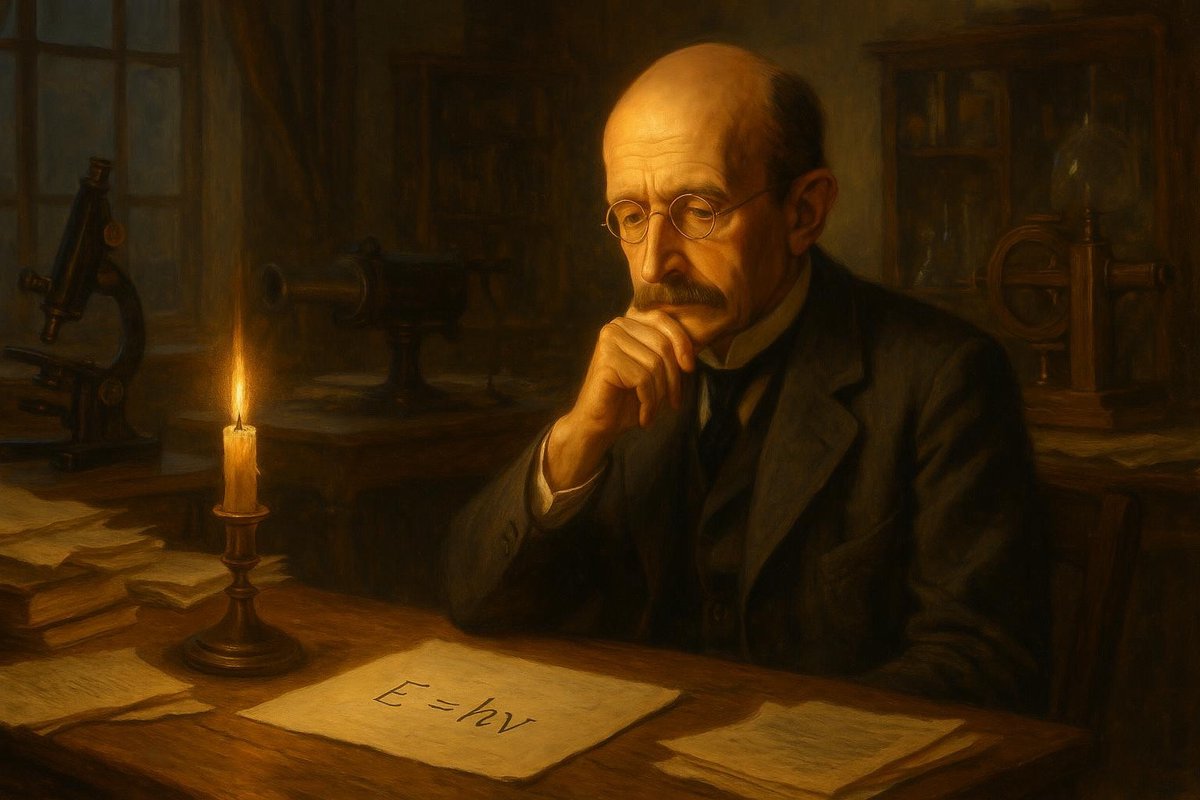
Unpacking the Question: How Did Max Planck Revolutionize Physics?
At the dawn of the 20th century, one might wonder: how could a single idea change the course of physics? Max Planck introduced the notion of quantized energy levels in 1900, a concept that would forever alter our understanding of the atomic and subatomic realms. But this shift was not as straightforward as it seems. Classical mechanics had long ruled the scientific world with its elegant, deterministic laws. However, phenomena at the atomic level stubbornly refused to fit neatly within this framework.
Consider the seemingly simple act of heating a metal and watching it glow. Classical physics faltered when attempting to predict the intensity of this glow at different temperatures. Planck’s quantization proposed that energy, much like money, comes in discrete packets, or ‘quanta’.
- Planck’s hypothesis: Energy is quantized, not continuous.
- Introduced the concept of a ‘quantum’, a finite packet of energy.
- Offered a way to solve the ‘ultraviolet catastrophe’ haunting classical physics.
This bold idea laid the groundwork for quantum mechanics, a theory that would redefine our comprehension of the universe, from the smallest particles to the very fabric of reality itself.
Surprising Facts: The Unexpected Leap into Quantum Thinking
Interestingly, the scientific community was not instantly on board with Planck’s radical idea, largely because it defied the intuitive nature of classical physics. Many people believed that energy could be divided infinitely, much like a flowing stream. Planck’s concept of quantas made it more akin to a series of water droplets.
As time goes on, it becomes clear that the implications of Planck’s work extend far beyond mere mathematics. His quantization theory:
- Challenged the continuous wave hypothesis of classical physics.
- Influenced Albert Einstein’s work on the photoelectric effect, earning him a Nobel Prize in 1921.
- Sparked a re-evaluation of foundational scientific principles.
In 1905, Einstein expanded upon Planck’s ideas, proposing that light itself is quantized, an assertion that contributed to the development of quantum theory. This perspective shift prompted deep philosophical and scientific debates about the nature of reality, deterministic laws, and the limits of human knowledge.
What Science Says: The Mechanics Behind Quantum Mechanics
What exactly was lacking in classical mechanics that necessitated the development of quantum mechanics? Simply put, classical theories failed to accurately explain phenomena at atomic and subatomic scales. Before Planck’s breakthrough, scientists struggled with concepts like blackbody radiation, which couldn’t be explained by existing theories.
Planck’s introduction of quantized energy levels:
- Resolved the ultraviolet catastrophe by limiting the energy that light waves could carry.
- Led to the Planck constant (h), a fundamental constant in quantum mechanics.
- Paved the way for Bohr’s model of the atom, which used quantum jumps to explain spectral lines.
Planck’s innovation was more than just a mathematical fix; it was a fundamental shift in understanding. His work paved the way for future discoveries, including Heisenberg’s uncertainty principle and Schrödinger’s wave mechanics, both of which deepened our grasp of the quantum realm.
What It Means for Us: The Legacy of Planck’s Quantum Leap
Planck’s introduction of quantized energy levels didn’t just revolutionize physics; it profoundly impacted technology, philosophy, and society. Today, quantum mechanics underpins much of modern technology, from semiconductors in computers to lasers in communication.
Reflecting on the broader societal impact:
- Influences philosophical debates about determinism and free will.
- Informs the ongoing quest for a unified theory of physics.
- Enables technological advances, influencing daily life more than one might realize.
In essence, Planck’s work ignited a scientific revolution that continues to ripple through our understanding of the universe. It challenges us to rethink the very nature of reality and inspires future generations to explore the unknown, pushing the boundaries of human knowledge.
As we reflect on the enormity of Planck’s contributions, we find ourselves asking more questions than ever, each leading us into deeper realms of inquiry and discovery.
Fuel Someone Else’s Curiosity
Are you intrigued by the quantum leaps in science? Why not share this exploration with your friends and fellow curious minds? Encourage others to ponder the mysteries of the universe and keep the conversation going. Sharing knowledge is a powerful way to fuel collective curiosity and inspire future discoveries.

Leave a Reply